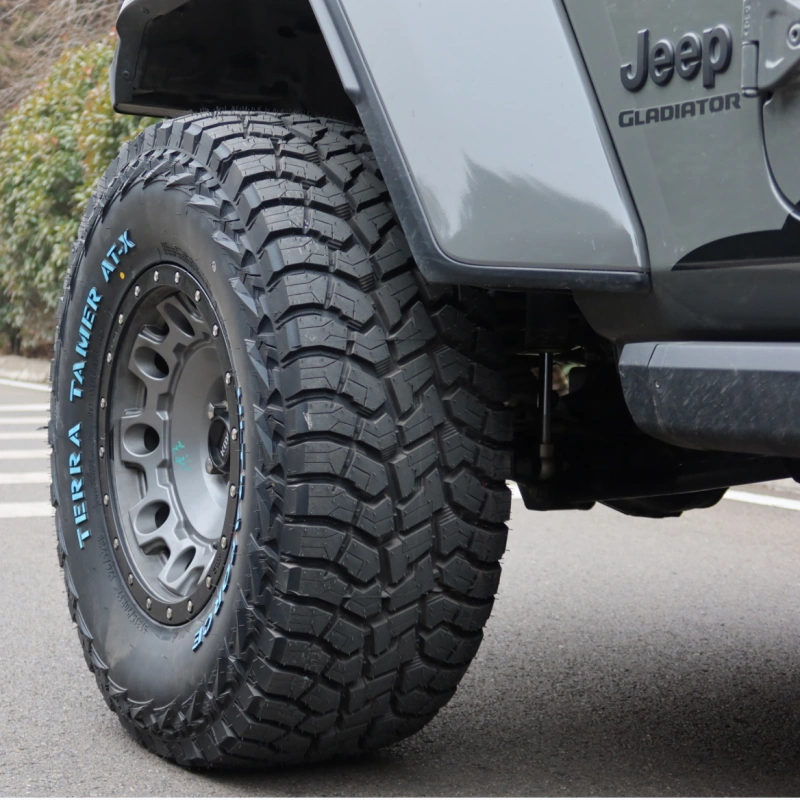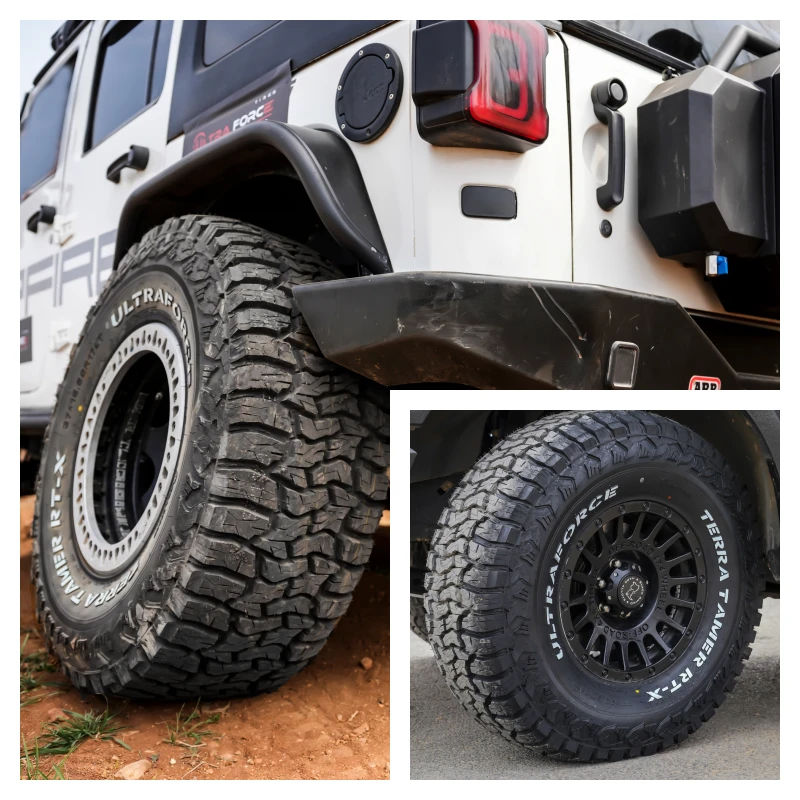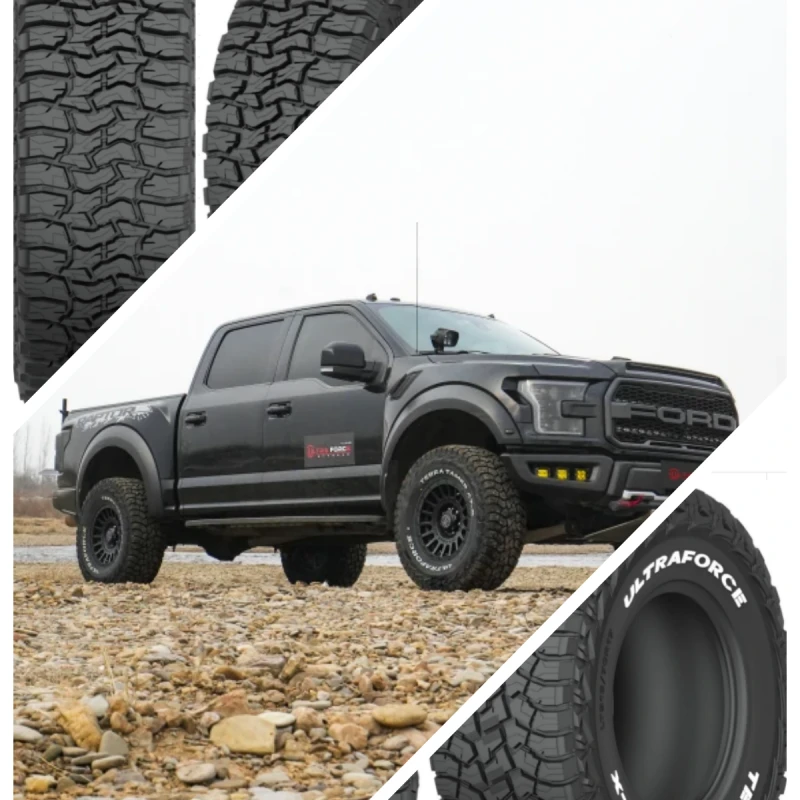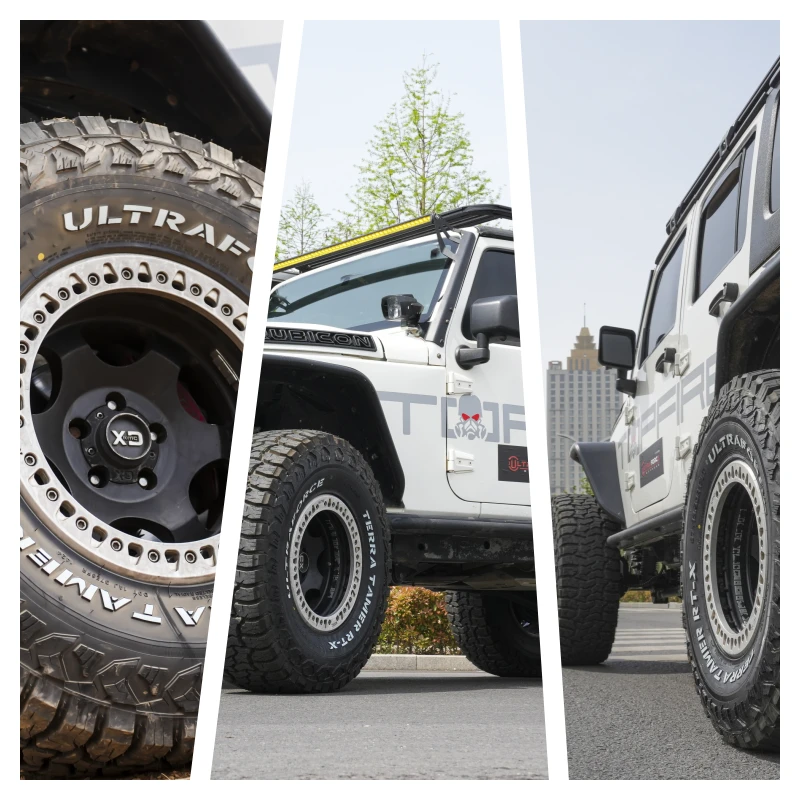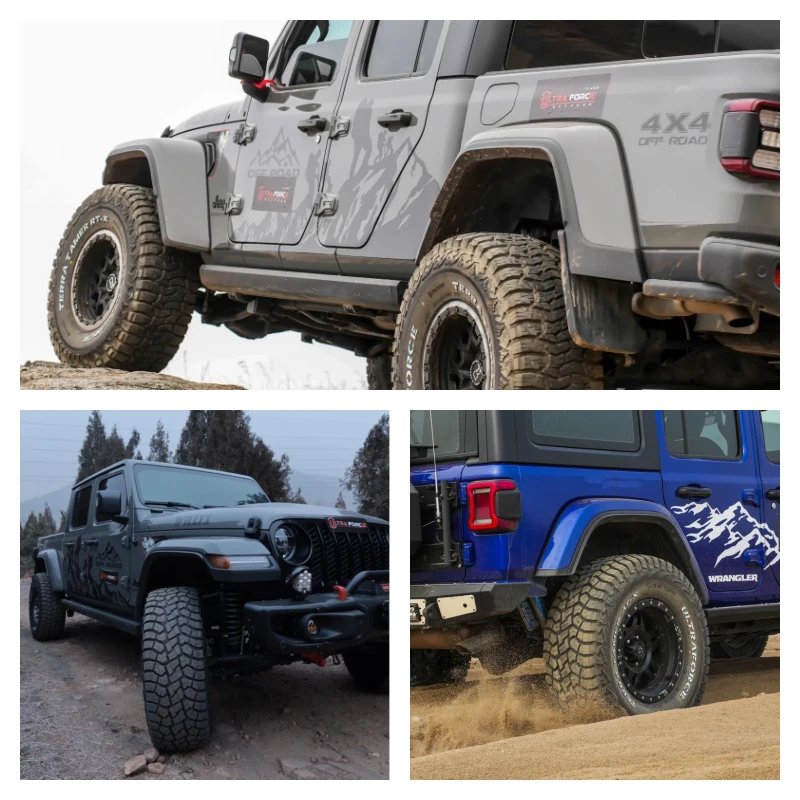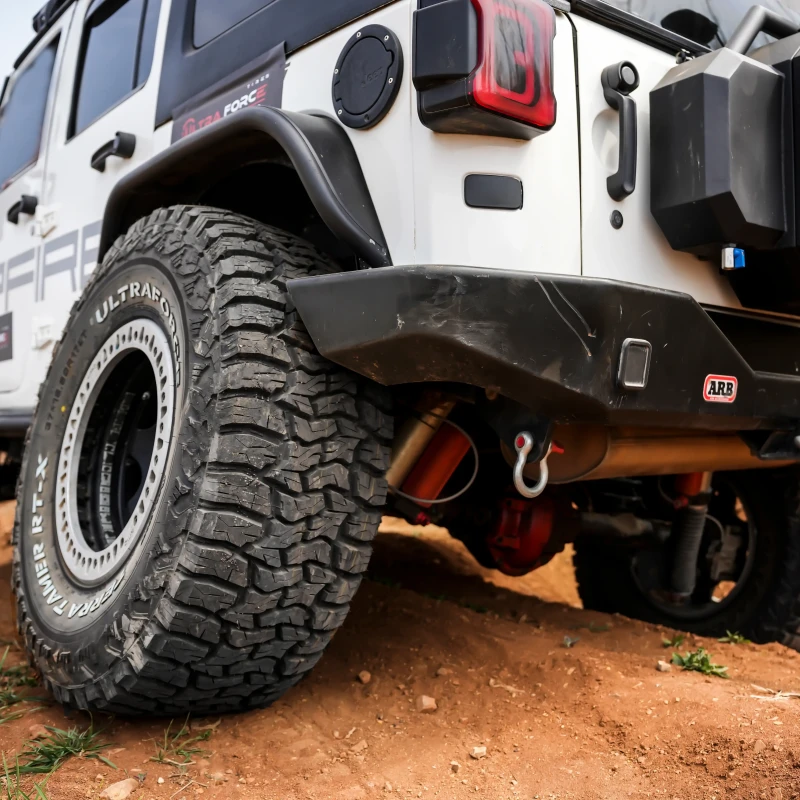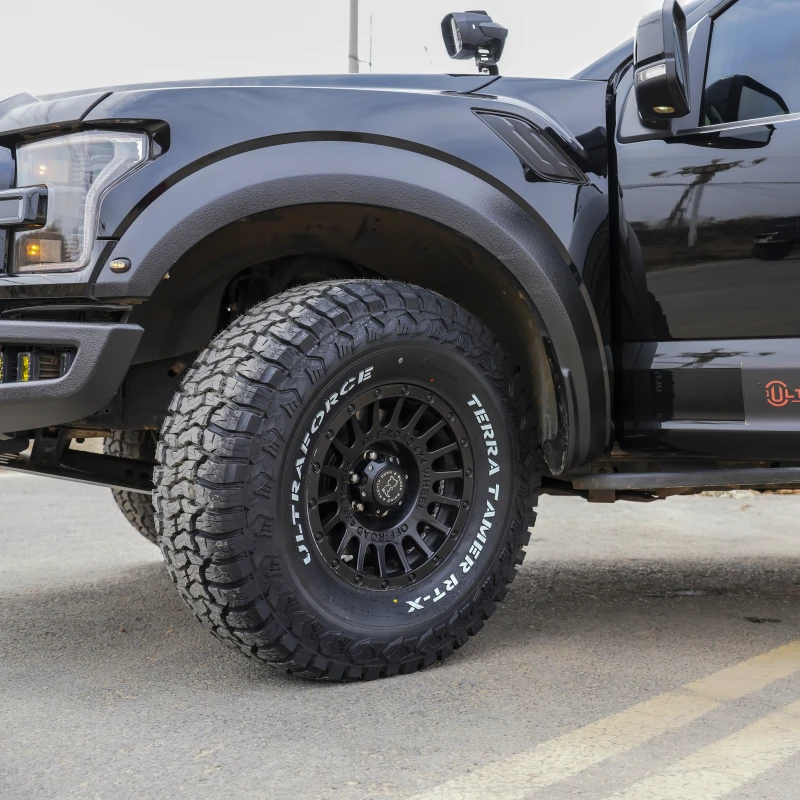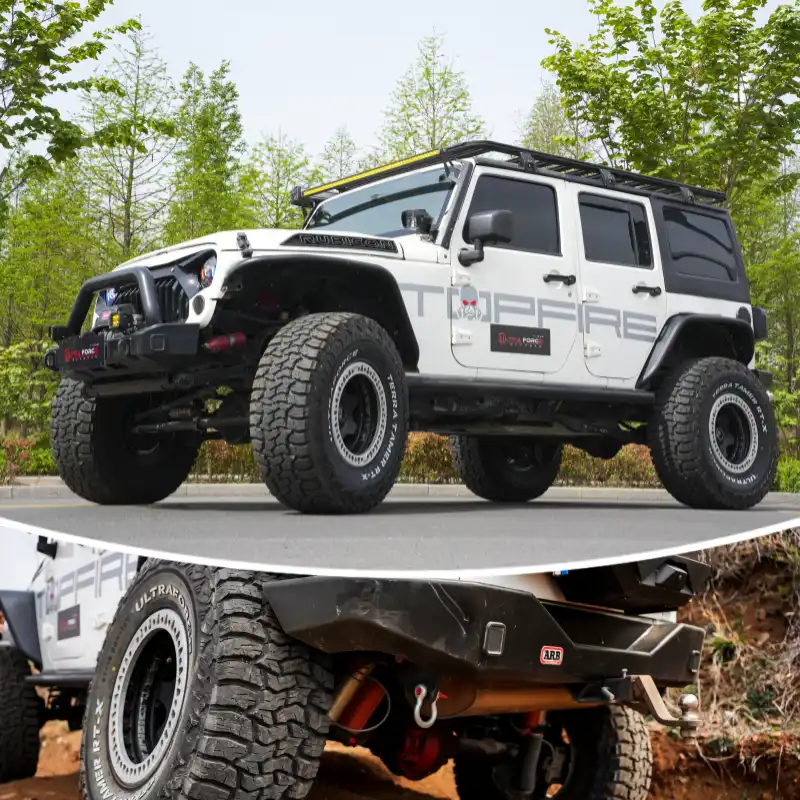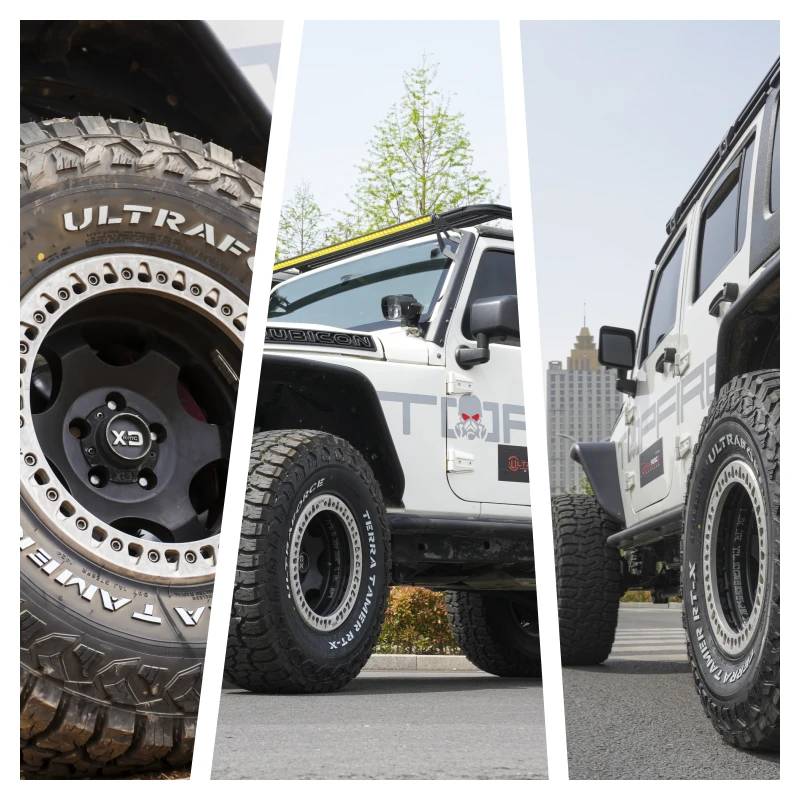Off-road tires are an essential component for vehicles designed to tackle rough terrain, muddy paths, rocky trails, and other challenging environments. However, like all tires, they have a limited lifespan. How long off-road tires last depends on a variety of factors, including the type of terrain they are driven on, driving habits, the quality of the tire, and maintenance practices. In this article, we’ll explore the factors that influence the longevity of off-road tires and provide insights into how to maximize their lifespan.
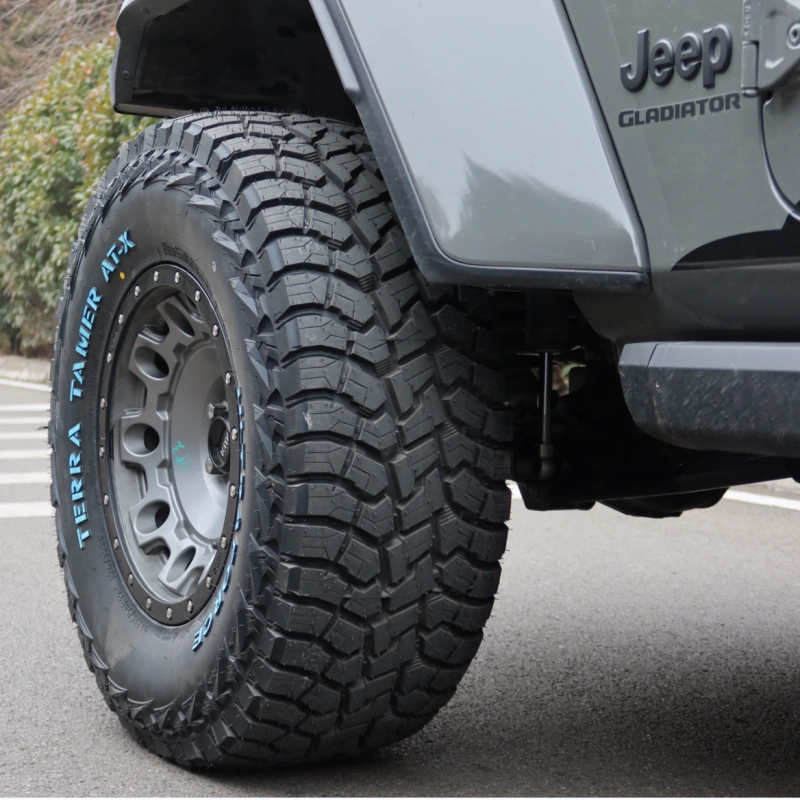
What Are Off-Road Tires?
Off-road tires are designed to handle rugged, uneven surfaces, including mud, rocks, sand, and snow. They differ from regular highway tires in terms of tread design, durability, and the materials used in construction. Off-road tires typically have deeper tread patterns, more aggressive sidewalls, and are built with tougher rubber compounds to withstand harsh driving conditions.
There are different types of off-road tires, such as all-terrain (A/T) tires, mud-terrain (M/T) tires, and rock-crawling tires. Each of these types has varying tread designs and characteristics, making them more or less suitable for specific terrains. Understanding these differences can also help in determining the lifespan of the tires.
How Long Do Off-Road Tires Typically Last?
The average lifespan of off-road tires varies widely depending on several key factors. Generally, off-road tires can last anywhere from 20,000 to 60,000 miles, but this is just a rough estimate. Some tires may wear out sooner, while others can last longer with proper care.
All-Terrain Tires: These are designed for both on-road and off-road use and typically last between 40,000 to 60,000 miles under normal driving conditions. They balance durability and comfort, making them suitable for everyday use as well as light off-road adventures.
Mud-Terrain Tires: Known for their aggressive tread patterns, mud-terrain tires excel in off-road environments, particularly in muddy, loose, or uneven terrain. However, because they are built for off-road use, they tend to wear out more quickly on highways. Their lifespan ranges from 20,000 to 40,000 miles, especially if used extensively on paved roads.
Rock-Crawling Tires: Designed for extreme off-road conditions such as rock crawling, these tires feature reinforced sidewalls and large, aggressive treads. They are incredibly durable off-road but wear down faster when driven on regular roads. Their lifespan can range from 10,000 to 30,000 miles, depending on usage.
Factors That Affect the Lifespan of Off-Road Tires
Several factors influence how long off-road tires last. Understanding these factors can help you make informed decisions about tire selection and maintenance, ultimately extending their lifespan.
1. Terrain and Driving Conditions
The type of terrain you drive on plays a significant role in how quickly your off-road tires wear out. Harsh, uneven surfaces like rocks, gravel, and sharp debris can accelerate wear, especially if you regularly tackle rugged trails. Conversely, softer surfaces like sand and mud may be easier on your tires, but prolonged driving through deep mud or sand can still cause stress and wear on the tread.
Driving on paved roads with off-road tires can also shorten their lifespan, particularly for mud-terrain or rock-crawling tires. The aggressive tread patterns on these tires are not optimized for smooth asphalt, causing them to wear faster on highways.
2. Driving Habits
Your driving habits significantly affect the longevity of your off-road tires. Aggressive driving, including sudden acceleration, hard braking, and sharp turns, can lead to faster wear and tear on your tires. Off-road tires are more durable than highway tires, but they are not immune to the effects of high-speed or reckless driving, particularly on rocky or uneven terrain.
If you frequently drive at high speeds or carry heavy loads, this can also cause increased wear on your tires, especially in off-road conditions where the tires are already subjected to significant stress.
3. Tire Quality
The quality of the tire is another important factor. Premium off-road tires made by reputable manufacturers often last longer because they are built with higher-quality materials and advanced technology. They may have reinforced sidewalls, better rubber compounds, and more durable tread designs, all of which contribute to a longer lifespan.
Budget or lower-end off-road tires may offer short-term savings, but they typically wear out more quickly, especially under demanding conditions. Investing in high-quality off-road tires can save you money in the long run by reducing the need for frequent replacements.
4. Tire Maintenance
Regular maintenance is crucial for prolonging the life of your off-road tires. Here are some essential maintenance practices to keep in mind:
Tire Rotation: Rotating your tires every 5,000 to 7,500 miles ensures even wear across all four tires, especially important for off-road tires that may experience uneven wear due to the terrain.
Proper Inflation: Maintaining the correct tire pressure is critical. Under-inflated tires can cause excessive wear on the sides and increase the risk of blowouts, while over-inflated tires reduce traction and cause uneven wear in the center of the tread.
Balancing and Alignment: Regularly balancing and aligning your tires helps prevent uneven wear and ensures optimal performance both on and off the road.
Tread Depth Monitoring: Checking the tread depth is essential for assessing the condition of your tires. When the tread depth falls below a safe level (usually 2/32 of an inch), it’s time to replace the tires.
5. Weight Load
The load you carry also affects how long your off-road tires will last. If your vehicle regularly carries heavy loads, this puts extra pressure on the tires, leading to faster wear. Overloading your vehicle beyond the manufacturer’s recommendations can cause premature tire failure.
6. Weather Conditions
Climate and weather conditions can impact tire wear as well. Hot weather causes the rubber in tires to soften, increasing wear, while cold weather can make the rubber more brittle. Extreme temperatures, both hot and cold, can shorten the lifespan of your off-road tires, especially if they are frequently exposed to harsh environmental conditions.
How to Maximize the Lifespan of Off-Road Tires
By following certain best practices, you can maximize the lifespan of your off-road tires and get the most value out of your investment.
1. Choose the Right Tire for Your Needs
Select off-road tires that are specifically designed for the type of terrain and driving conditions you encounter most frequently. For example, if you split your driving time between paved roads and off-road trails, all-terrain tires may be a better option than mud-terrain tires, as they offer a balance of durability and performance for both environments.
2. Practice Safe and Controlled Driving
Avoid aggressive driving behaviors, especially when off-roading. Sudden stops, quick accelerations, and sharp turns can lead to uneven wear and premature tire failure. When driving off-road, try to maintain steady speeds and avoid unnecessarily rough maneuvers that could damage your tires.
3. Regular Tire Inspections
Conduct regular inspections of your off-road tires, especially after off-road adventures. Check for cuts, punctures, sidewall damage, or embedded debris that could compromise the integrity of the tire. Address any issues immediately to prevent further damage.
4. Maintain Optimal Tire Pressure
Keep your tires inflated to the recommended pressure levels. Off-road driving often requires adjusting tire pressure for better traction, but always return the tires to the proper pressure for highway driving. Regularly check your tire pressure and adjust as needed to avoid under- or over-inflation.
5. Rotate Your Tires
Rotating your off-road tires regularly ensures even wear and extends their lifespan. Off-road driving can cause tires to wear unevenly due to the uneven terrain, making tire rotation particularly important for maintaining balance.
Conclusion
The lifespan of off-road tires depends on multiple factors, including the type of tire, terrain, driving habits, and maintenance practices. On average, off-road tires can last anywhere from 20,000 to 60,000 miles, but proper care and driving can significantly extend this range. By choosing the right tires for your vehicle, practicing good driving habits, and maintaining your tires regularly, you can maximize their lifespan and ensure optimal performance on and off the road.
UltraForce Tires Company Overview
UltraForce Tires is a leading designer and manufacturer of off-road and passenger tires, with decades of expertise in product development and global export. Committed to excellence, UltraForce Tires delivers high-performance, durable tires with superior traction, ensuring a top-tier driving experience for every customer. Whether you're navigating daily roads or tackling challenging off-road trails, UltraForce Tires offers products that exceed performance expectations and provide reliability across various driving conditions. With a focus on customer satisfaction, UltraForce Tires is dedicated to being the ultimate companion for all your driving adventures.
